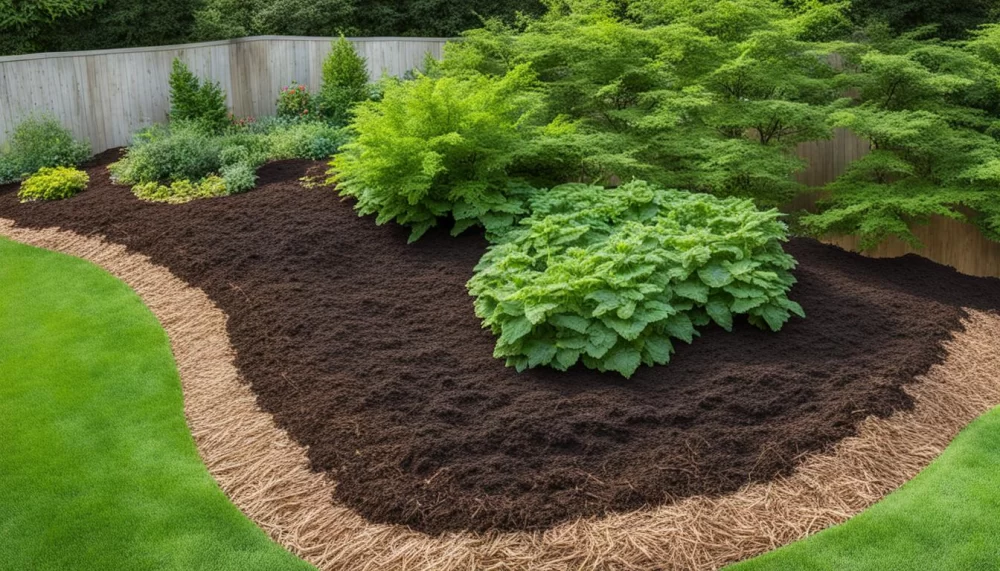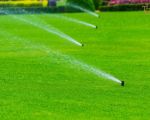
- Benefits of Organic Mulch for Your Lawn
- How Organic Mulch Improves Soil Health
- Moisture Retention and Temperature Regulation
- Weed Control and Pest Management
- Real-World Examples Showcasing Effectiveness
- Expert Advice on Choosing and Applying Organic Mulch
Benefits of Organic Mulch for Your Lawn
Organic mulch offers a range of valuable benefits that directly contribute to the health and beauty of your lawn. Unlike synthetic alternatives, organic mulch is made from natural materials such as shredded bark, wood chips, leaves, or composted plant matter. These materials not only enhance the appearance of your lawn but also provide essential nutrients back into the soil as they decompose. By integrating organic mulch into your lawn care routine, you create a supportive environment for grass roots, promoting robust growth and long-term vitality.
One of the standout advantages of using organic mulch for your lawn is its ability to improve soil fertility naturally. This process supports sustainable lawn maintenance by reducing the need for chemical fertilizers, which can be harmful to the environment. Additionally, organic mulch helps protect the lawn from extreme weather, minimizing damage caused by droughts or harsh sunlight.
Natural Lawn Enhancement
When organic mulch breaks down, it enriches the soil with organic matter, improving its texture and water retention capacity. This encourages beneficial microbial activity that is crucial for nutrient cycling, ensuring that your lawn receives steady nourishment throughout the growing season.
How Organic Mulch Improves Soil Health
Soil health is the foundation of any thriving lawn. Organic mulch enhances soil structure by increasing aeration and promoting water infiltration. Unlike inorganic mulches, organic materials gradually integrate into the soil, replenishing vital nutrients and improving its ability to retain moisture.
This ongoing enrichment process helps prevent soil compaction, which often restricts root growth and leads to patchy or weak grass. By keeping the soil loose and nutrient-rich, organic mulch supports deep root development that is essential for a resilient lawn capable of withstanding environmental stresses.
Supporting Microbial Life
The decomposition of organic mulch stimulates beneficial soil microbes and earthworms, which play a vital role in breaking down organic matter and releasing nutrients. This symbiotic relationship creates a healthier ecosystem within your lawn’s soil, ultimately leading to stronger, greener grass.
Moisture Retention and Temperature Regulation
One of the most practical benefits of organic mulch is its ability to retain moisture in the soil. By acting as a protective layer, mulch reduces evaporation, meaning your lawn requires less frequent watering. This is particularly advantageous during hot summer months or drought conditions when maintaining soil moisture is critical for lawn health.
Additionally, organic mulch helps regulate soil temperature by insulating the ground. During warm weather, it keeps the soil cooler, protecting roots from heat stress. Conversely, in cooler seasons, it acts as a barrier that helps retain warmth, extending the growing season for your lawn’s grass.
Reduced Water Usage
Homeowners who have switched to organic mulch often notice a significant reduction in water bills, thanks to its superior moisture conservation. This not only benefits the environment but also makes lawn care more cost-effective and manageable.
Weed Control and Pest Management
Organic mulch acts as a natural weed suppressant by blocking sunlight from reaching weed seeds, which helps reduce their germination and growth. This decreases the competition for nutrients and water, allowing your lawn to thrive without the interference of unwanted plants.
Moreover, some types of organic mulch can deter pests by creating a less hospitable environment for insects that damage grass. Unlike chemical pesticides, organic mulch offers a safer, eco-friendly alternative for pest management that supports overall lawn health.
Enhancing Lawn Aesthetics While Fighting Weeds
Aside from functional benefits, organic mulch adds a polished, natural look to your lawn that many homeowners find visually appealing. Its ability to reduce weed growth means less time spent on manual weeding or applying herbicides, freeing you up to enjoy your green space.
Real-World Examples Showcasing Effectiveness
Consider the case of a suburban family in Ohio who incorporated organic mulch into their lawn care last spring. Within months, they observed noticeable improvements: their grass appeared lusher, with fewer bare patches and significantly less weed intrusion. The mulch also helped their lawn survive a particularly dry summer without needing excessive watering.
Another example comes from a professional landscaper who advocates organic mulch after witnessing the long-term benefits in multiple client lawns. Their experience showed that lawns mulched organically required less fertilizer and pesticide input, reducing overall maintenance costs while enhancing soil vitality.
Lessons from Lawn Care Experts
These success stories underscore why experts recommend organic mulch as a cornerstone of sustainable lawn care. It aligns with environmental stewardship principles while delivering practical benefits that homeowners appreciate.
Expert Advice on Choosing and Applying Organic Mulch
When selecting organic mulch, it’s important to consider the type best suited for your lawn’s needs. Wood chips provide longer-lasting coverage, while shredded leaves or compost decompose faster, enriching the soil more quickly. The depth of mulch application should generally be between 2 to 4 inches to maximize benefits without suffocating the grass.
Applying mulch at the right time is equally critical. Early spring or late fall are ideal periods, as mulch can protect soil through seasonal changes and prepare the lawn for healthy growth cycles.
For those looking for tailored recommendations or quality products, Lawn Care Services offers expert guidance and a wide range of organic mulch options suited to different lawn types and climates. Their professional advice can help you achieve the best results while maintaining an eco-friendly approach.
Practical Tips for Homeowners
Ensure that mulch is kept a few inches away from the base of grass stems to prevent moisture buildup that could lead to disease. Regularly refreshing the mulch layer also helps maintain its effectiveness throughout the year.








